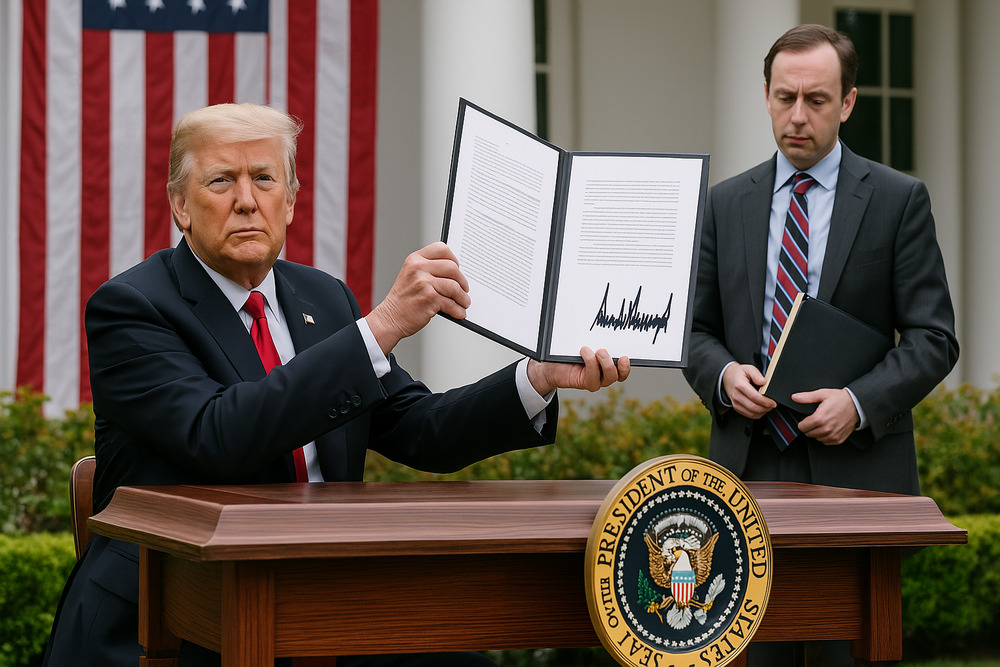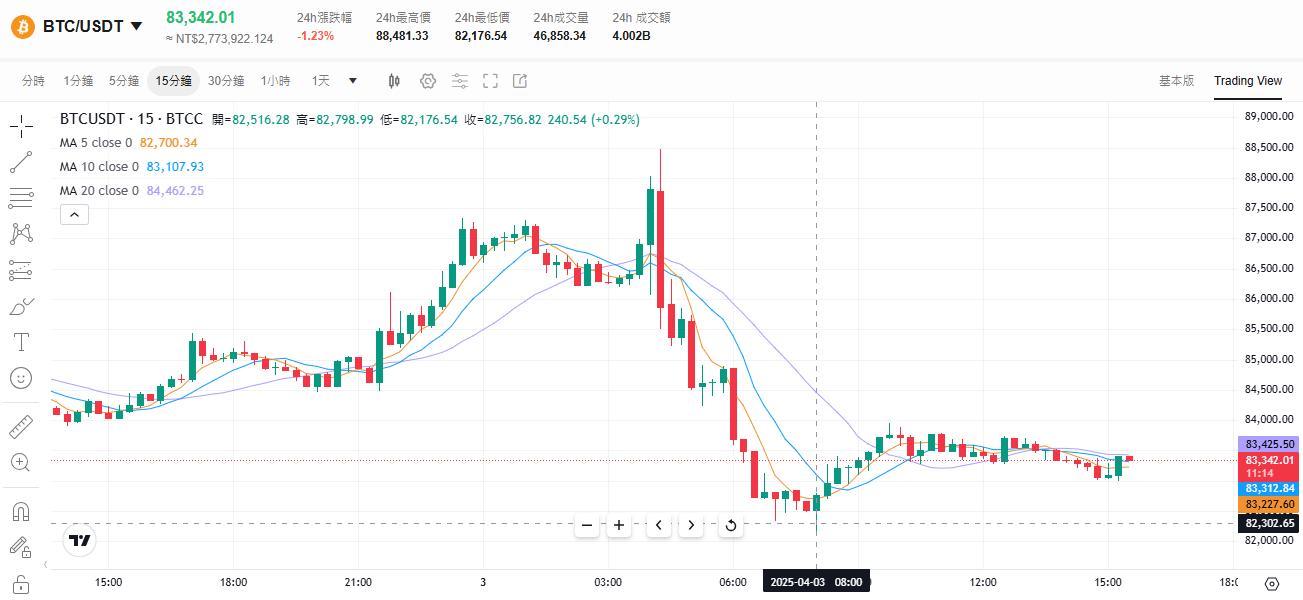Global financial markets experienced sharp fluctuations in overnight trading, especially the cryptocurrency market, after US President Donald Trump announced comprehensive tariffs on nearly 200 trading partners. Trump's decision raised market concerns about escalating global trade tensions, causing investors to withdraw from risky assets and turn to traditional safe-haven assets such as gold.
Trump announces new trade policy
Trump's executive order announced that starting April 5, 2025, all imports will be subject to a 10% base tariff, except for goods that meet the provisions of the USMCA (United States-Mexico-Canada Agreement). Tariffs for some countries will be raised to 49%. Of particular note, all foreign-made cars will face a 25% tariff. This policy will take effect on April 9, 2025, and will have a significant impact on the United States' trading partners. "The trade relationship between the United States and its trading partners has become extremely unbalanced, especially in recent years," Trump said in a statement.

In addition, Trump also announced reciprocal tariffs against specific countries that are considered to have set up significant barriers to US products in trade. For example, China will face a 54% comprehensive tariff, of which the new 34% surcharge is particularly significant. Other countries such as Japan, the European Union, India and Vietnam will also face tariffs of up to 46% each.
Cryptocurrency market reacts violently
After Trump announced the tariff policy, the global cryptocurrency market fell rapidly. In the past 24 hours, the overall market fell by 3.6%. As of press time, the GMCI 30 index fell by 4.6%. According to the BTCC trading platform, after approaching the $88,000 level in the early hours of this morning, the price of Bitcoin fell by 3% to $82,300.

Altcoins suffered even more in the hours after Trump's announcement. Ethereum fell more than 6% to below $1,800, while Solana (SOL) fell 6.5% to around $118. Among the top 10 cryptocurrencies by market cap, Dogecoin (down 6.2%), XRP (down 5.5%), BNB (down 3.7%), Cardano (down 5.8%), and Tron (down 2%) all fell to varying degrees.
Traditional stock market and gold market reaction
Global stock markets reacted equally violently, with Dow Jones, Nasdaq and S&P 500 futures falling 2%-4% in after-hours trading. U.S. stock market leaders such as Apple (down 7%), Amazon (down 6%) and Nvidia (down 5%) were also hit hard in the market sell-off.
In sharp contrast, gold prices hit a record high during the Asian trading session. Although Bitcoin and other cryptocurrencies are often regarded as "digital gold", recent market fluctuations show that cryptocurrencies are still closely related to changes in global risk appetite. In this environment, investors have turned to traditional safe-haven assets such as gold, driving up gold prices.
Conclusion
The tariff policy announced by Trump has increased uncertainty in global markets and triggered investor concerns about the outbreak of a global trade war, further increasing downward pressure on cryptocurrencies. This policy has had a profound impact on global financial markets, especially in the cryptocurrency and stock markets. Although Bitcoin was once seen as a safe-haven asset in times of economic uncertainty, its recent performance shows that cryptocurrencies are still closely tied to broader risk appetite. With global markets becoming unstable, investors may be inclined to transfer funds to more traditional safe-haven assets, such as gold, to cope with future uncertainties.














